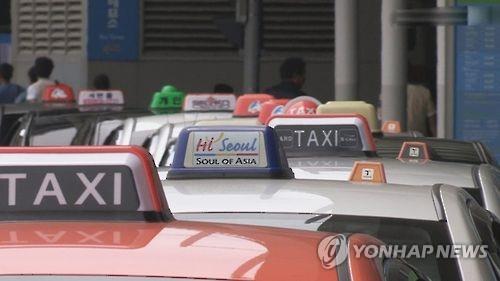- California Assembly OKs highest minimum wage in nation
- S. Korea unveils first graphic cigarette warnings
- US joins with South Korea, Japan in bid to deter North Korea
- LPGA golfer Chun In-gee finally back in action
- S. Korea won’t be top seed in final World Cup qualification round
- US men’s soccer misses 2nd straight Olympics
- US back on track in qualifying with 4-0 win over Guatemala
- High-intensity workout injuries spawn cottage industry
- CDC expands range of Zika mosquitoes into parts of Northeast
- Who knew? ‘The Walking Dead’ is helping families connect
Audit finds Seoul city only raised taxi fare without proper crackdown on unauthorized off-duty taxis
The state audit agency announced Monday that the Seoul city government had not properly cracked down on taxis going off-duty without proper notification, due to concerns over potential opposition from taxi drivers.
Instead, the Seoul metropolitan government increased taxi fares to meet the growing demand for late-night taxi services following the relaxation of social distancing measures and business curfews imposed due to the COVID-19 pandemic, according to the Board of Audit and Inspection (BAI).
Taxi drivers are required to report to authorities before going off duty, with violation of the rule three times potentially resulting in the revocation of their taxi licenses. The issue of off-duty taxis without prior notification was cited as one of the reasons for the taxi shortage.
In November 2021 and April 2022, the city government introduced a series of measures to deal with a taxi shortage, including a crackdown on off-duty taxis without prior notification and an additional charge for nighttime taxi rides.
At the time, however, the city government applied a low threshold for calculating off-duty business days.
The BAI said the city government has not properly carried out the regulatory reform, excluding measures that can be opposed by taxi drivers.
Instead, the base fare for public taxis was raised from 3,800 to 4,800 won (US$3.60), and late-night surcharges began to apply starting at 10 p.m., earlier than midnight.
The BAI reported a total of 20 violations and related incidents, and it requested disciplinary actions against six government officials following the audit outcome.












